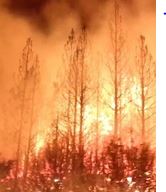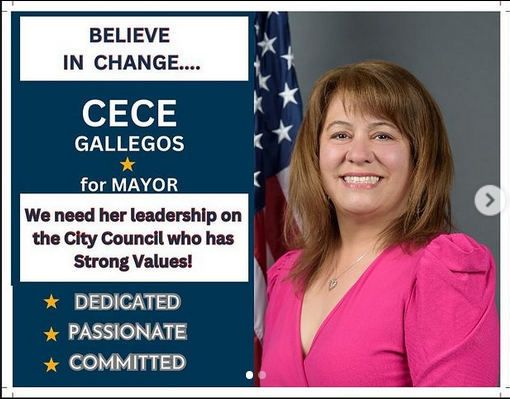
U.S. Attorney Scott stated: “In 2018, in the aftermath of the Carr Fire and Camp Fire, and we encouraged the public to report any suspected fraudulent activity and promised to aggressively pursue and prosecute fraud and abuse. Today we are announcing federal charges against individuals who abused the goodwill of the taxpayers and claimed losses that they had not incurred. These investigations are ongoing, and we are not done holding people accountable for fraudulent claims.”
Amanda Thandi, Special Agent in Charge Department of Homeland Security, OIG, Office of Investigations, of the San Diego Field Office stated: “The Department of Homeland Security (DHS), Office of Inspector General (OIG) remains committed to eradicating these and other cases of disaster fraud. As a result of the recent indictments, these individuals will no longer benefit from illegally manipulating the programs designed for assessing the critical needs, home repairs, replacement of personal property, and shelter for persons displaced from their residences due to the California wildfires.”
“Disaster fraud re-victimizes communities devastated physically and emotionally by natural disaster by diverting federal funds from communities and stealing from the victims with significant needs. This is why the FBI is committed to working closely with our local, state, and federal partners to identify and investigate allegations of fraud related to disaster recovery and we want people to both protect themselves and report fraud as it is discovered,” said Special Agent in Charge Sean Ragan of the FBI Sacramento Field Office. “Together, we continue to aggressively pursue those who prey upon innocent victims of natural disasters and the people who want to help them.”
On Nov. 8, 2018, the “Camp Fire” started in Butte County and burned for approximately 18 days. It burned approximately 153,336 acres, destroyed approximately 13,972 residential structures and caused approximately 85 deaths. The Camp Fire is known as the deadliest and most destructive wildfire in California history. On Nov. 12, 2018, the President declared that a major disaster existed in California, and as a result of this declaration, some residents of Butte County who were affected by the fire were eligible to apply for disaster assistance from FEMA.
FEMA provides Direct Housing Assistance to eligible applicants, such as a manufactured home or trailer for use as temporary housing. FEMA also may provide rental assistance to rent alternative housing accommodations. This assistance is available to eligible individuals whose primary residence was damaged or destroyed by the fire regardless of whether they own or rent the home. In certain circumstances, residents can also receive benefits to replace or repair personal property (including standard appliances, essential clothing, standard room furnishing, and essential tools) damaged or destroyed due to a disaster.
The following defendants have been charged with one count of fraud in connection with a major disaster or emergency benefit. According to the charges, they each falsely claimed that a residence in Paradise that had been destroyed in the fire was their primary residence.
Deborah Laughlin, 64, falsely claimed 7209 Skyway, Apt 18 in Paradise as her primary residence and received $9,674.70 in benefits and a FEMA trailer. According to court documents, on Nov. 3, 2018, Laughlin was arrested at her residence in Willows and remained in jail until Nov. 13, 2018, which was several days after the Camp Fire began.
Evan Palmer, 30, of Chico, falsely claimed 4440 Clark Road, #1 in Paradise as his primary residence and received $26,490.67 for his travel trailer that was destroyed in the fire. His primary residence, however, was in Chico.
Kristy Marie Tapp, 34, falsely claimed 5152 Pentz Road in Paradise as her primary residence and received $3,263.91 in benefits. She filed her application for assistance after the Butte County Sheriff had issued a public notification identifying a couple, aged 67 and 70, as deceased victims of the fire. Tapp falsely claimed they were her landlords.
Patrick Prigmore, 54, falsely claimed 1040 Pearson Road in Paradise as his primary residence and received $12,837.71 in benefits and a FEMA trailer.
Two indictments remain sealed.
These cases are the result of investigations by the Department of Homeland Security, Office of Investigations and the Federal Bureau of Investigation. Assistant U.S. Attorney Shelley Weger is prosecuting the cases.
If convicted, the defendants face up to 30 years in prison and a fine of up to $250,000. Any sentence, however, would be determined at the discretion of the court after consideration of any applicable statutory factors and the Federal Sentencing Guidelines, which take into account a number of variables. The charges are only allegations; the defendants are presumed innocent until and unless proven guilty beyond a reasonable doubt.
The U.S. Department of Justice established the National Center for Disaster Fraud (NCDF) to investigate, prosecute, and deter fraud in the wake of Hurricane Katrina when billions of dollars in federal disaster relief poured into the Gulf Coast region. Its mission has expanded to include suspected fraud from any natural or manmade disaster. More than 20 federal, state, and local agencies participate in the NCDF, which allows the center to act as a centralized clearinghouse of information related to disaster relief fraud.
California residents are encouraged to watch for and report any suspicious activity or potential fraud from scam artists, identity thieves, and other criminals who may try to prey on vulnerable survivors of this disaster. Anyone with knowledge of fraud, waste, or abuse may call the Federal Emergency Management Agency’s (FEMA) Disaster Fraud Hotline at (866) 720-5721 or report it to the Federal Trade Commission at ftccomplaintassistant.gov.















































